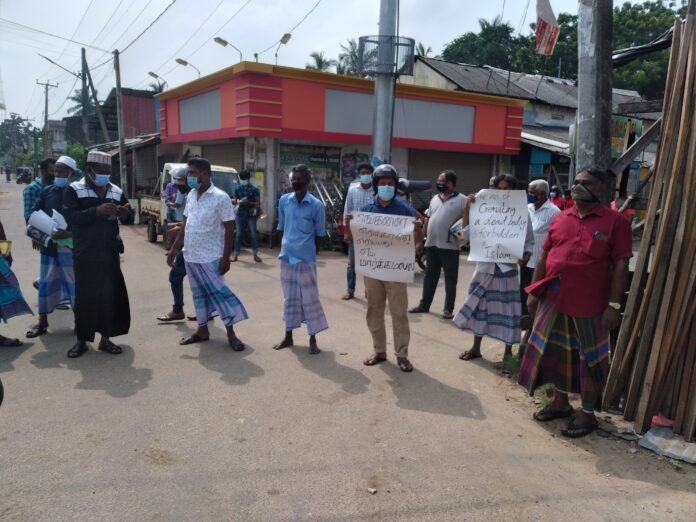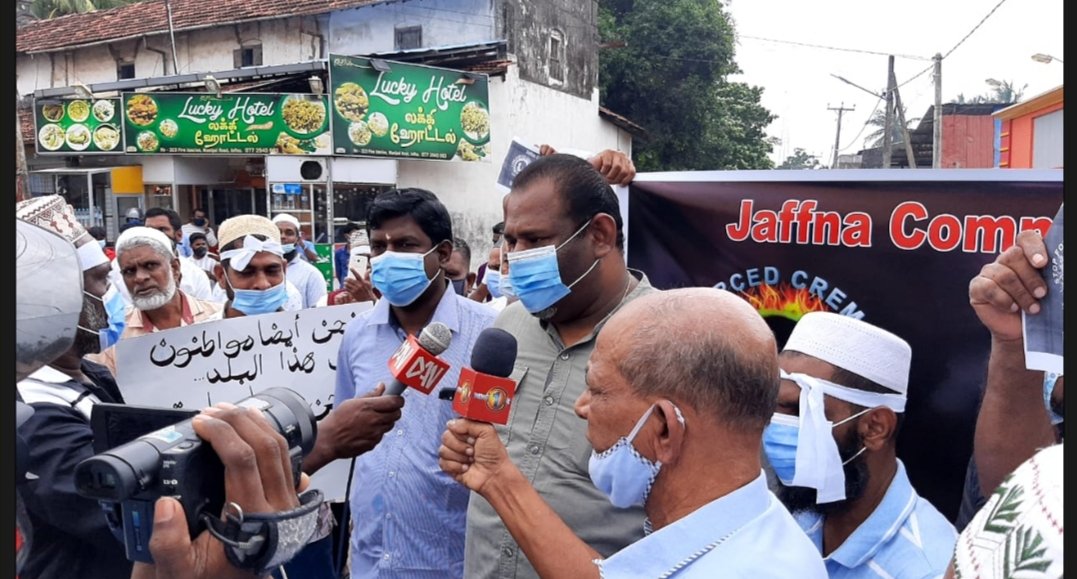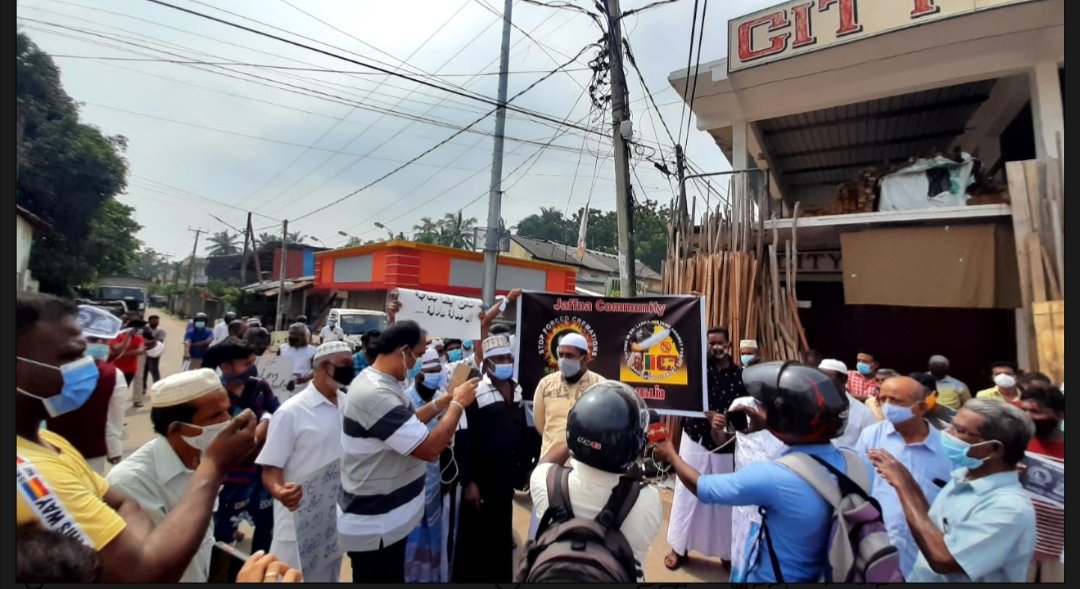
Protesters in Jaffna against Sri Lanka’s policy of compulsory cremations
Demonstrators in Jaffna voiced their discontent concerning Sri Lanka’s policy of compulsory cremations, as campaigns against Sri Lanka’s forced cremations intensify across the island.

Jaffna Muslims, Mosque authorities, Ulamas, and Tamil National People’s Front (TNPF) activists and members held the protest at the 5-Lane Junction area in Jaffna today, condemning the state’s policy which opposes Islamic practices, and despite concerns raised by the UN, and World Health Organisation (WHO) guidelines stating that cremations for COVID-19 deaths are not compulsory.
“The time has come for Tamils and Muslims to join hands for democratic protests” stated S.Kajendran, General-Secretary of the TNPF.
Several protests took place across the Tamil Homeland last week as Tamils and Muslims came together to resist the Sri Lankan government’s policy of compulsory cremations for Muslim victims who have allegedly contracted COVID-19.

.jpg)
Around 50 Muslims have been forcibly cremated by the state out of a recorded 1224 deaths due to the coronavirus, with reports of Muslims who were denied burial rights although testing negative for COVID-19. The forced cremation of a 20 day old baby against his parent’s wishes has caused outrage on the island; the parents have filed a Fundamental Rights petition demanding that the Sri Lankan health authorities produce and disclose all medical records in relation to the hospitalisation, as well as the death and disposal of the dead body of the baby.
The Sri Lankan government have reportedly been in discussions with the government of the Maldives to have Muslim bodies buried in exile. This policy was condemned by the Maldives’ former Maldivian Foreign Minister, Dunya Maumoon, who called upon Sri Lanka to “respect their Muslim minority’s wish to have last rites of COVID-19 patients”.
We need your support
Sri Lanka is one of the most dangerous places in the world to be a journalist. Tamil journalists are particularly at threat, with at least 41 media workers known to have been killed by the Sri Lankan state or its paramilitaries during and after the armed conflict.
Despite the risks, our team on the ground remain committed to providing detailed and accurate reporting of developments in the Tamil homeland, across the island and around the world, as well as providing expert analysis and insight from the Tamil point of view
We need your support in keeping our journalism going. Support our work today.
For more ways to donate visit https://donate.tamilguardian.com.

